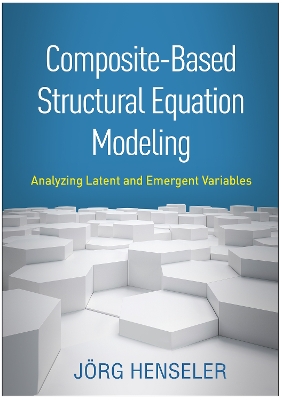Methodology in the Social Sciences
1 total work
This book presents powerful tools for integrating interrelated composites--such as capabilities, policies, treatments, indices, and systems--into structural equation modeling (SEM). Jörg Henseler introduces the types of research questions that can be addressed with composite-based SEM and explores the differences between composite- and factor-based SEM, variance- and covariance-based SEM, and emergent and latent variables. Using rich illustrations and walked-through data sets, the book covers how to specify, identify, estimate, and assess composite models using partial least squares path modeling, maximum likelihood, and other estimators, as well as how to interpret findings and report the results. Advanced topics include confirmatory composite analysis, mediation analysis, second-order constructs, interaction effects, and importance–performance analysis. Most chapters conclude with software tutorials for ADANCO and the R package cSEM. The companion website includes data files and syntax for the book's examples, along with presentation slides.
